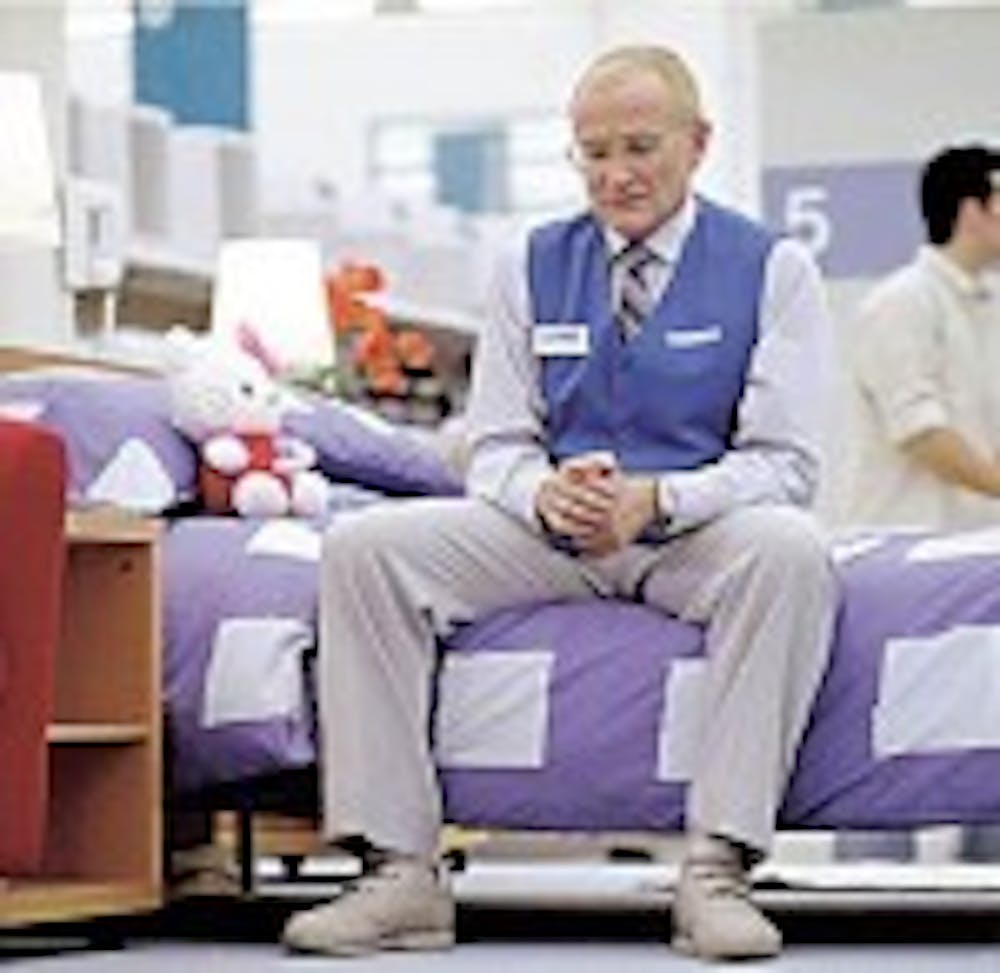We live in a visual culture, and although we are used to the notion that anyone can spend a couple hundred dollars and acquire a consumer-grade video camera, the real creative power of the people still lies in the simple image: the unobtrusive photograph.
Think about the pictures you're taking the next time you pick up your one-time-use, disposable Kodak. Whether you shoot a record of a baby's first steps, a wild dorm party or a day out with your friends, it is deeply personal. Though you may not enjoy looking at other people's photographs, your own can almost always bring a smile to your face.
However, there is also a deep paranoia surrounding the idea that an image of you is available for anyone else to see. Think about the warnings regarding posting jpegs on Web sites, of horror stories about people "gaining" Internet stalkers, and you begin to see the disturbing side of a culture where every picture is worth a thousand words, image is everything, and beauty is revered for its own sake.
This is precisely the reality that is examined in Mark Romanek's "One Hour Photo," the second film in recent times starring Robin Williams as a quiet, calm psychotic. In both this film and Chris Nolan's "Insomnia," Williams has completed his return to serious drama by playing not heroes, but deeply disturbed individuals whose antisocial compulsions soon lead them to cross the line of legality into a dark, murky place where personal satisfaction is more important than the rights of others.
In every visual way, "Photo" takes its cue from the favored medium of Sy Parrish (Williams). Each shot is laid out as a still image - especially at the outset, the mise en scene (a French term which means, simply, what is contained in the scene) is carefully determined. With a score that often contrasts the action, but always compliments it (and yet is credited nowhere I could find), "Photo" can expect to hit it big if and when a soundtrack is released.
Not to mislead; although it is a work of extreme intelligence and almost frightening conceptual clarity, "Photo" is not an easy film to watch. Sy's monologues are what drive the conceptual background of the film, separating its fairly standard plot from the chafe of any other psycho-stalker story. What's more, its ability to play to stereotypes is rendered disturbing by the nuances of the acting and direction. Because Sy is a lonely, older man, we expect him to show an inappropriate amount of interest in Jakob and Nina Yorkin - what we don't expect is Sy's reaction when he finds that Will Yorkin, whose wife accuses him of being a neglectful father and husband, has been cheating.
There is a thin film of unease scraped over this movie, similar to watching Stanley Kubrick's "A Clockwork Orange." Except in that film, it is the initial 10 or 15 minutes of footage that place the viewer on edge, expecting more of a similar shade of sex and violence to take place. In "Photo," it is the idea of stereotypes that leads us to prejudge Sy and the Yorkins, before any graphical evidence to counteract or confirm these suspicions is evidenced.
What makes "Photo" exhilarating is its depth. It is the monologues used to examine what we see in photographs, how they portray our lives, which ask its viewers to question the way they think of their place in a visual vulture. If Sy can mistake the Yorkins for a perfect family, what does that say about Americans and their tendency to idolize on the basis of appearance?
Although "One Hour Photo" may not, as one reviewer claimed, do for one-hour photo printers "what 'Psycho' did for showers," it certainly examines some pertinent issues regarding the use of imagery, asking us to reconsider the importance we place on our photographs and the wisdom of to whom we entrust these images.





